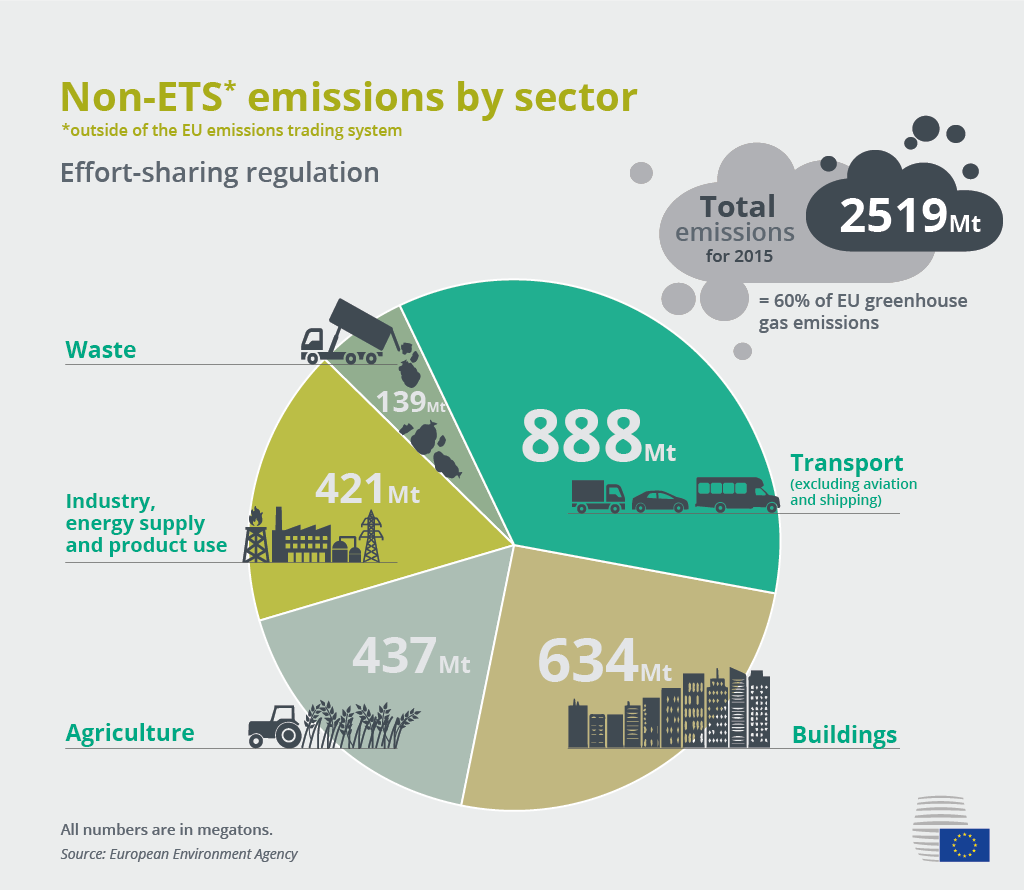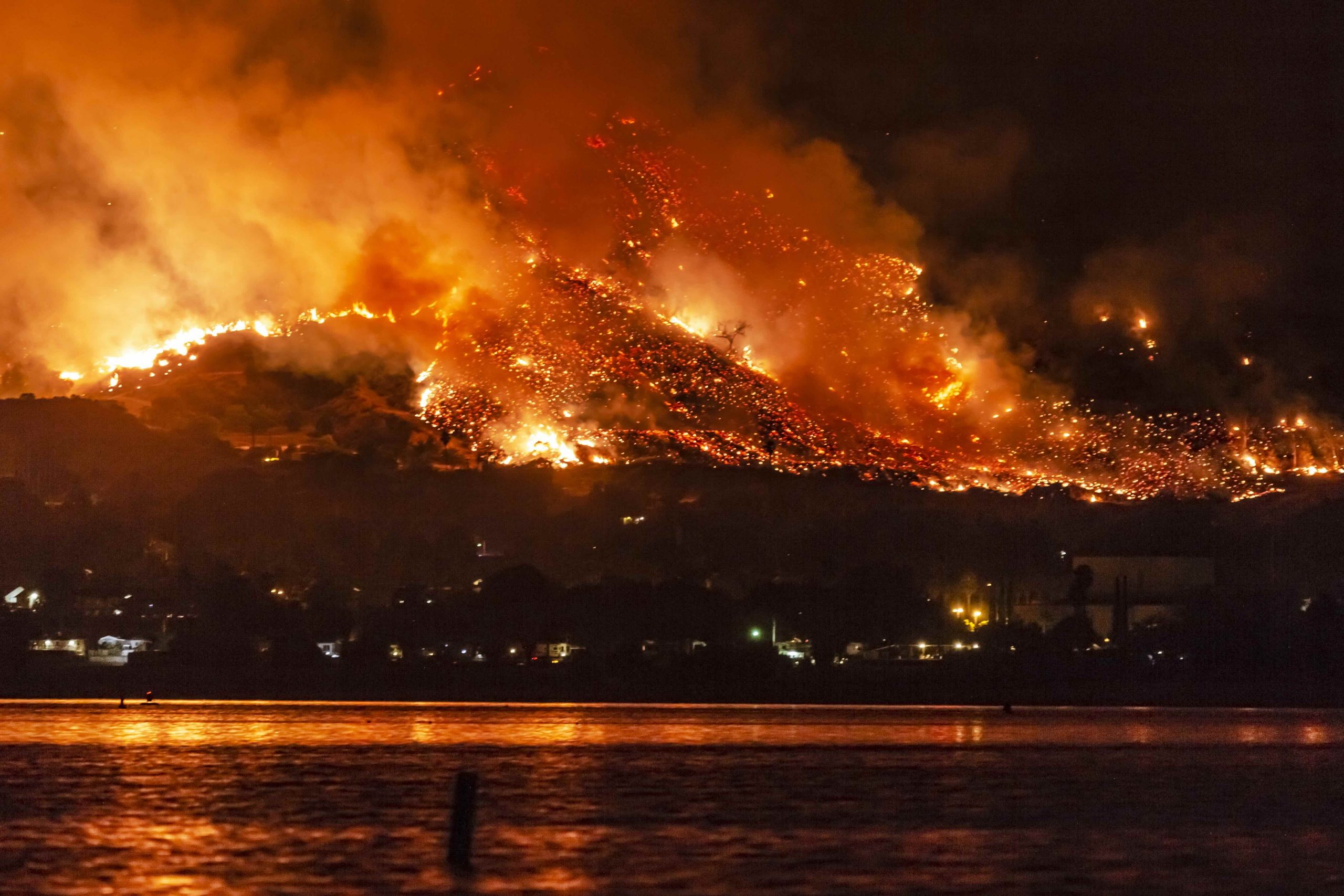The new law is the outcome of almost two years of negotiations between EU institutions and Member States, and covers those sectors that fall outside the scope of the EU Emissions Trading System (EU ETS): transport, buildings, agriculture, non-ETS industry and waste, collectively accounting for almost 60% of the EU’s total domestic emissions (see the infographic).
Enlarge

European Council Council of the European Union - http://www.consilium.europa.eu/en/infographics/non-ets-emissions-by-sector/
The Effort Sharing Regulation sets out binding emission reduction targets for member states in non-ETS sectors for the period 2021-2030.
The national targets for 2030 range from 0% (Bulgaria) to –39% (Denmark) compared with 2005 levels. The overall target is to achieve 30% reduction in EU emissions from the sectors covered by 2030.
In addition, a limited new reserve will be set up for lower-income countries that exceed their national targets for 2013-2020 and face challenges in meeting their new targets, on the condition that the EU as a whole achieves the 30% reduction target for 2030.
The Effort Sharing Regulation is one of the pillars of the EU’s 2030 climate and energy framework. Together with the recently revised ETS directive and the new regulation on land use, land use change and forestry (LULUCF Regulation, also adopted in May), it creates the binding legal framework for the EU to reduce overall greenhouse gas emissions by at least 40% by 2030, compared to 1990 levels.
The new LULUCF regulation aims to improving protection and management of land and forests across the European Union, and to ensuring that emissions and removals generated by this sector are taken into account in the European climate and energy plan for the period 2021 to 2030. It sets out binding commitments for each Member State and the accounting rules for determining compliance.
Under the new legislation, EU countries have to ensure that greenhouse gas emissions from LULUCF activities are offset by at least an equivalent removal of CO₂ from the atmosphere (the so-called “no-debit” rule). For instance, deforestation shall be compensated by an equivalent afforestation effort.
The Council also adopted the revised directive on the energy performance of buildings (complementing EU legislation on energy efficiency and the Clean Energy Package), and new rules on environmental monitoring and reporting obligations by Member States (mostly aimed at updating or removing obsolete legislation).
The new regulations will enter into force twenty days after the publication in the official journal.
Read more:
European Commission press release: Member States’ emission reduction targets for 2021 to 2030 adopted
Eu Commission press release: Regulation on land use, land use change and forestry in 2030 climate and energy framework adopted
Council of the European Union press release: Effort sharing regulation: Council adopts emission reduction targets
Council of the European Union press release: Better protection and management of land and forests across the Union: Council adopts a new regulation






